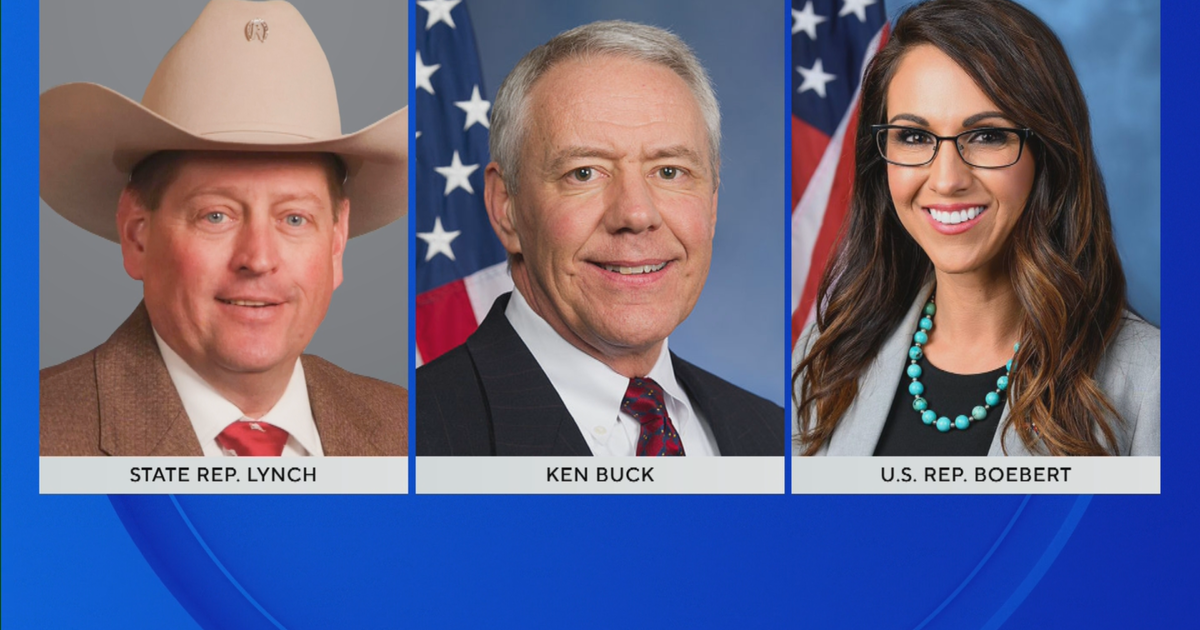Study Suggests Big Repairs To Colorado's Finances
DENVER (AP) - Higher income taxes for the rich. Getting rid of public colleges or state crime labs. Changing Colorado's constitution to enact a state property tax.
The University of Denver laid out some dramatic proposals Wednesday for state officials trying to repair an out-of-whack financial situation that economists say threatens disaster unless the state makes big changes to taxation and spending.
A previous nonpartisan study by the university spelled out how Colorado is heading over a fiscal cliff because it has spending requirements and taxation limits that conflict. By 2025, economists say Colorado's expenses could exceed revenues by some $3.5 billion.
DU economists say officials have no choice but to consider unpopular tax hikes and service cuts.
"We're not going to cut our way out of this, and we're not going to tax our way out of this," said Charlie Brown, director of the Center for Colorado's Economic Future at the university, which was tasked in 2010 to scour Colorado's books and tell lawmakers where the state is headed.
Earlier this year, DU economists laid out the dilemma for lawmakers who write the state budget.
They said the state's two biggest-ticket items -- Medicaid and K-12 education -- are driven by federal mandates and requirements in the state constitution. At the same time, voter-approved tax limits in the state constitution, such as the Taxpayers Bill of Rights, make it difficult for officials to raise taxes, even to keep up with expanded needs.
Unless changes are made, the economists argue, the entire Colorado budget will be gobbled by health care, prisons and K-12 education by 2025. They say Colorado's economy will grow but not fast enough for taxes to keep pace with anticipated growth in those three areas.
On Wednesday, economists released the highlights of their second task -- how to fix the problem. They conceded that their suggestions won't be popular.
One possibility is eliminating spending on everything but those three core areas. That scenario would include privatizing state institutions of higher learning; closing all state parks; scrapping the Colorado Bureau of Investigation and all state crime labs; and shuttering the state mental health hospital.
Even if those cuts are made, the DU report warns, public school funding would still have to be cut at least 19 percent a year in 13 of the next 14 years. That's because Colorado's limits on the ability of local governments to pay for the schools, combined with constitutional requirements that school funding keep pace with inflation and growth, mean the tab for K-12 schools tips every year toward state government, which itself has tax limits.
The report says Colorado could make some big changes to how its citizens are taxed. If Colorado restores a graduated income tax, in which the rich pay more, billions of dollars in needed revenue could be raised. It also asserts the K-12 funding mess could be fixed by entirely replacing local property taxes with a statewide property tax to be phased in over 10 years.
That change would replace varying mill-levy rates throughout the state and stabilize school funding. But it would also require a voter-approved constitutional amendment because the Taxpayers Bill of Rights precludes a statewide property tax.
The university report also suggested new personal service sales taxes of 2.9 percent on everything from haircuts and oil changes to divorce lawyers. Economists warned lawmakers not to look to sin taxes on tobacco and alcohol taxes. Such levies are an easier sell with the public but don't produce the kind of money needed.
For example, a higher tobacco tax is the only one Colorado voters have approved since the bill of rights was passed in 1992. But consumption has dropped, too, giving the state checkbook less and less of a boost.
A new income tax structure would raise the most money, the economists said.
Since 1987, Colorado has taxed income a flat 4.63 percent. If the state returned to a graduated income tax, the rich would pay more. The report authors suggested a possible four-tier system in which people making $200,000 a year would pay 6 percent income tax. But they conceded such a change to the income tax structure wouldn't go down easy with the public.
"These taxes, even though they're moderate when compared to the gap ... are not painless for anyone, and we recognize that," Brown said.
The full report won't be available for a couple more months, though DU released highlights and has a website allowing citizens to tinker with taxes and spending to see how they might fix the problem.
"Obviously something has to happen," Brown concluded in a presentation for reporters. "The question is, what?"
LINK: University of Denver Tax Builder
- By Kristen Wyatt, AP Writer
(Copyright 2011 by The Associated Press. All Rights Reserved.)



